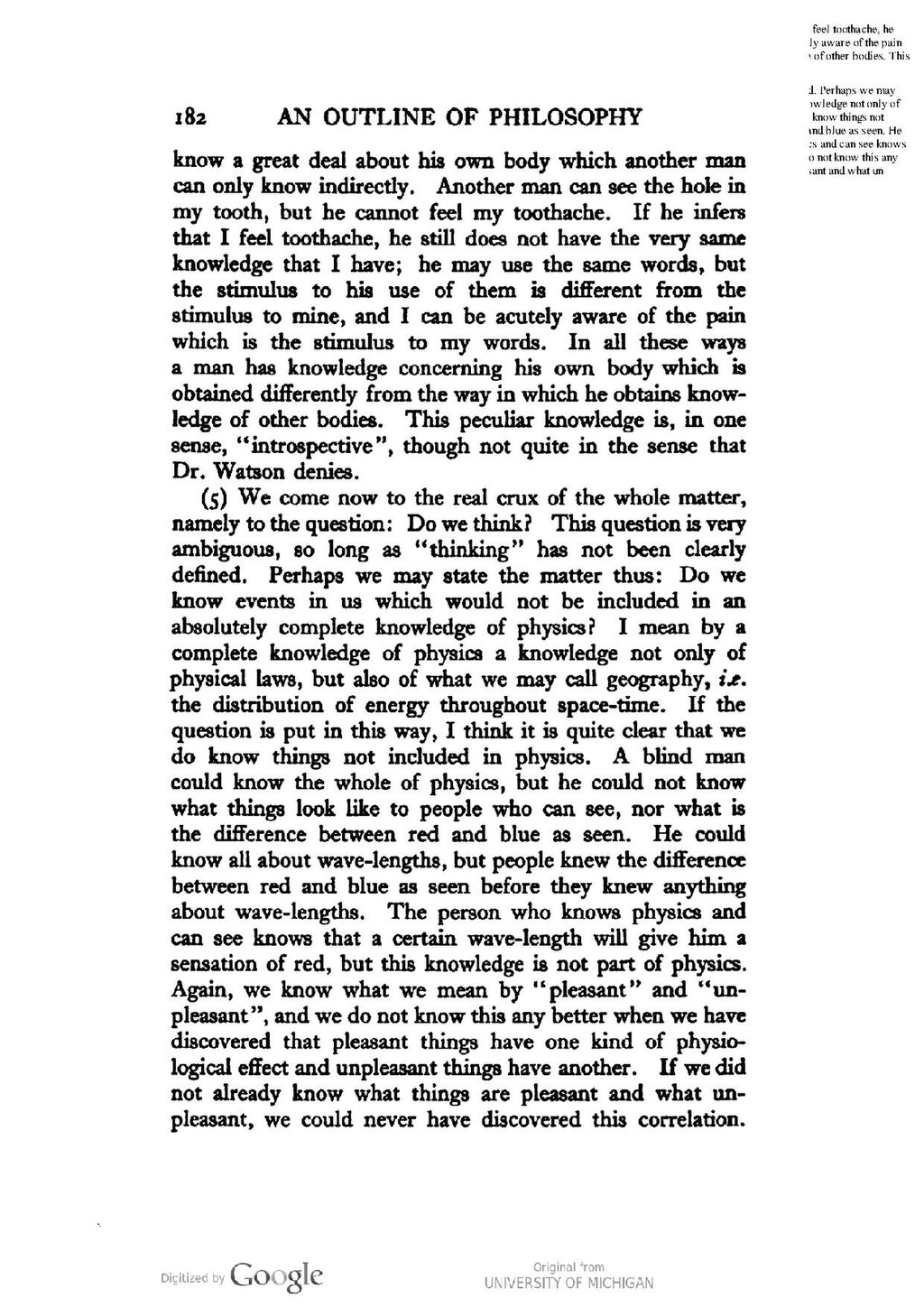know a great deal about his own body which another man can only know indirectly. Another man can see the hole in my tooth, but he cannot feel my toothache. If he infers that I feel toothache, he still does not have the very same knowledge that I have; he may use the same words, but the stimulus to his use of them is different from the stimulus to mine, and I can be acutely aware of the pain which is the stimulus to my words. In all these ways a man has knowledge concerning his own body which is obtained differently from the way in which he obtains know ledge of other bodies. This peculiar knowledge is, in one sense, "introspective", though not quite in the sense that Dr. Watson denies.
(5) We come now to the real crux of the whole matter, namely to the question: Do we think? This question is very ambiguous, so long as "thinking" has not been clearly defined. Perhaps we may state the matter thus: Do we know events in us which would not be included in an absolutely complete knowledge of physics? I mean by a complete knowledge of physics a knowledge not only of physical laws, but also of what we may call geography, i.e. the distribution of energy throughout space-time. If the question is put in this way, I think it is quite clear that we do know things not included in physics. A blind man could know the whole of physics, but he could not know what things look like to people who can see, nor what is the difference between red and blue as seen. He could know all about wave-lengths, but people knew the difference between red and blue as seen before they knew anything about wave-lengths. The person who knows physics and can see knows that a certain wave-length will give him a sensation of red, but this knowledge is not part of physics. Again, we know what we mean by "pleasant" and "unpleasant", and we do not know this any better when we have discovered that pleasant things have one kind of physio logical effect and unpleasant things have another. If we did not already know what things are pleasant and what unpleasant, we could never have discovered this correlation.
